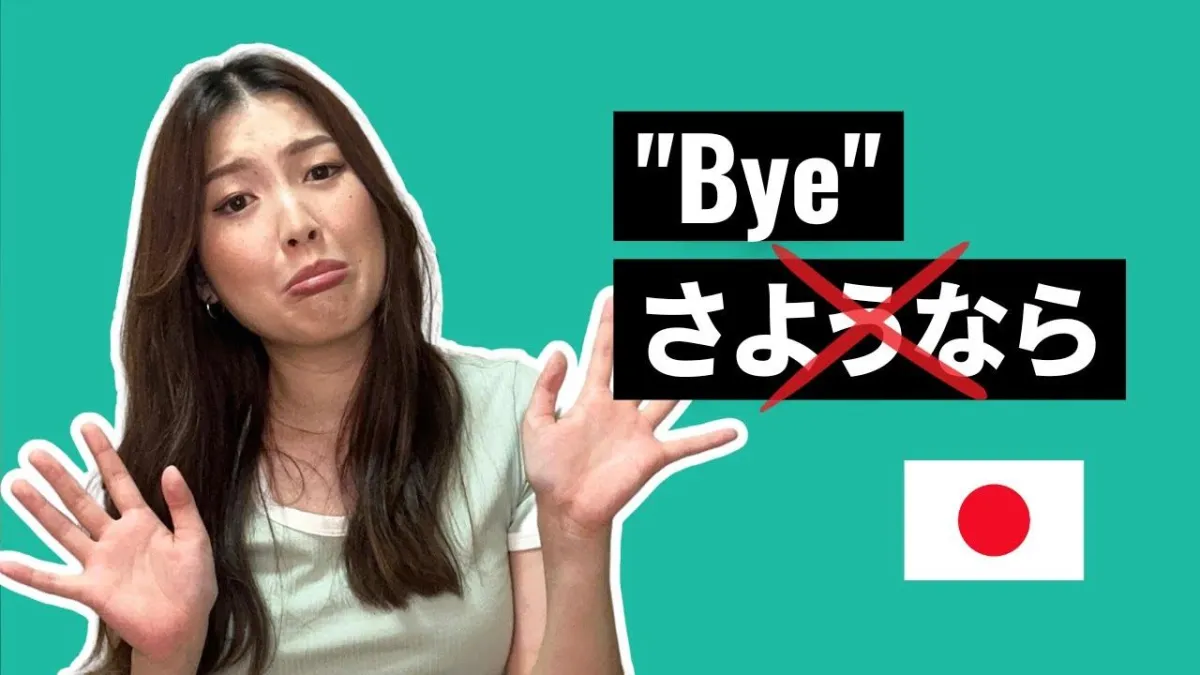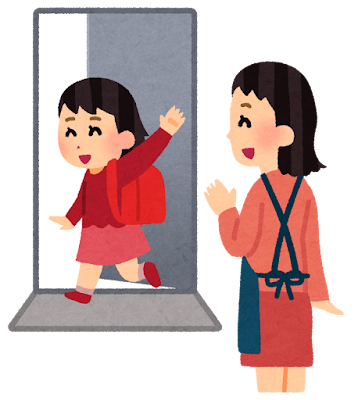
Goodbye in Japanese
Saying goodbye is not easy…
Goodbye in Japanese
1. Introduction: Sayōnara – Meanings & Uses
2. The etymology of “Sayōnara”
3. Situation 1: Casual Ways to Say Bye to Friends
Other resources to help you get started with blogging
Situation 2: Goodbye in Japanese at Night Time
Introduction:
So you’ve heard さようなら (sayōnara) before, right? And yes, it does mean goodbye in Japanese. But here’s something you might not know… most Japanese people don’t actually use it in everyday life. I don’t either—unless I’m breaking up with someone or leaving forever!
As a greeting, さようなら (sayōnara) tends to be one of the first phrases Japanese learners may encounter. Yet, this phrase is not used almost at all. In fact, saying this to a friend or co-worker can be very condescending.
Then how do we greet your friends, co-workers, and people you encounter when you want to say goodbye in Japanese? Read on and you will master greetings in different situations.
With that said, here are 8 reasons why you should start blogging on your website today! 👊
1. Introduction: Sayōnara – Meanings & Uses
Why is sayōnara a standard for textbook goodbye in Japanese? The reason is because this is how teachers say goodbye to students in a classroom or school situation. Students learn to say this back to the teacher at the end of the day as a formal greeting. However, this is not used in many situations outside of school.
2. The etymology of “Sayōnara”
Interestingly, “さようなら” actually comes from the phrase 左様ならば (“If that’s the case…”). In older times, people would say something like:
左様ならば、これにてご免ください。
sayō naraba, kore nite gomen kudasai.
If that’s the case, please excuse me.
左様ならば、ごきげんよう。
sayō naraba, gokigenyō.
If that’s the case, have a good day.
Eventually as the language evolved, this phrase 左様ならば (sayō naraba) was shortened to “さようなら,” (sayōnara) and now most people just say “さよなら” to say goodbye in Japanese. But again—it’s rare to hear this in daily life outside of schools. Instead, let’s look at all the better, more natural ways to say goodbyeーbased on the situation. Let’s go!
3. Situation 1: Casual Ways to Say Bye to Friends
1. じゃあね
Here are friendly, everyday goodbyes you can use with friends or people your age.
じゃあね
jyaane
Okay then, bye!
じゃあ」 means “well then,” and 「ね」is a sentence-end particle used to share feeling/information with the other person. It adds a friendly notion.
A masculine version you may have heard in anime is:
じゃあな
jyaana
2. またね
またね
matane
Okay then, bye!
また simply means again and just like じゃあね (jyaane) we add the ね at the end to make it a softer, inclusive phrase. Sometimes, you will hear young males say:
またな
matana
You can also combine the first two goodbyes to say:
じゃあ、またね
jyaa, matane
3. また (time)
If you are saying bye to someone you will the next day, you would say see you tomorrow in English. In the same way, you can add a time word after また (mata) if you know when you are meeting next time. To do that, we need to know some basic time words.
Common Time Words in Greetings
あとで atode – later
明日 ashita – tomorrow
来週 raishū – next week
来月 raigetsu – next month
来年 rainen – next year
こんど kondo – next time
So in Japanese, see you tomorrow would be:
また明日(ね)
mata ashita(ne)
Or see you next week would be:
また来週(ね)
mata raishū(ne)
In a similar manner, you can also use days of the week in this greeting such as:
また金曜日ね!
mata kin’yōbi ne!
Don’t know the days of the week in Japanese quite yet? Memorize it through Yuya sensei’s rap HERE!
Other resources to help you get started with blogging
Situation 2: Goodbye in Japanese at Night Time
If you are trying to say goodbye in Japanese at the end of the day, towards bedtime, you can actually use this:
おやすみなさい
oyasuminasai
Have a good night.
Typically, the more intimate nature of the phrase good night makes it more natural to use between family members or closer friends. Neighbors or other members of an apartment may also use this if you encounter them at nighttime. Otherwise, the greeting can mark the end of a late night party at an izakaya (Japanese pub).
With friends, you can also use the casual version:
おやすみ
oyasumi
A more polite way of saying this, which nurses might say to an overnight patient or colleagues might say to their seniors in a work trip is:
おやすみなさいませ
oyasuminasaimase
The good night greeting in Japanese is not only used over the phone or in bed, but also in goodbyes at the train station to your friends at night or with your neighbors.
Situation 3: Leaving your home or group

Japanese people DO NOT say see you later when they leave their homes. They say:
いってきます
ittekimasu
The grammar breakdown is as follows:
いって – comes from the te-form conjugation of 行く (to go)
きます – means I’ll come back
The person staying behind and greeting off the person leaving should respond:
いってらっしゃい
itterasshai
The らっしゃい part is very similar to the store or restaurant greeting いらっしゃいませ (irasshaimase) – this is another way to say “come in” which adds the meaning of the person being welcomed back when they return. It sounds like they are telling them: “Please go and please come back”
Most times these phrases are used at home, but you can also hear this in group settings such as a friend leaving for an occasion or stepping away from the office in the middle of the day.
During a picnic, some food and drinks run out. So you decided to volunteer to buy more food and drinks at a nearby convenience store for the friend group. When you leave the group temporarily, a fitting greeting would be:
コンビニいってきます
conbini itte kimasu.
I’ll be gone to the Conbini (and I’ll come back).
You can use this in business settings as well. Before going on a business trip, you might want to notify your colleagues by saying:
大阪に行ってきます
ōsaka ni itte kimasu.
I’m going to Osaka.
Or if you are stepping away from office for a meeting with a client or a member of another department, a proper greeting to your colleagues can be:
ミーティング行ってきます
mi-tingu itte kimasu.
